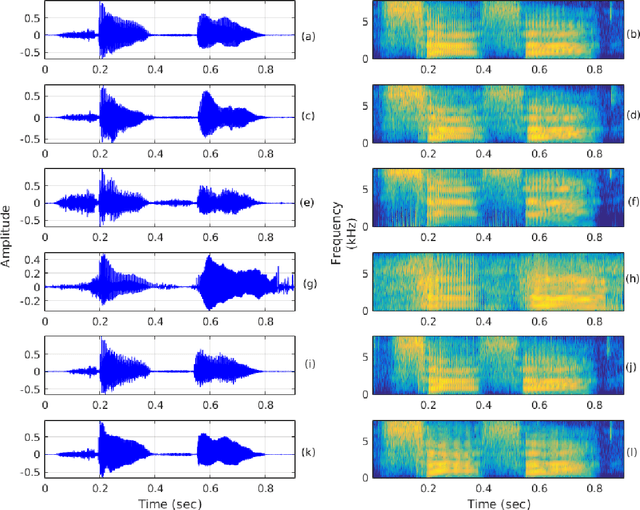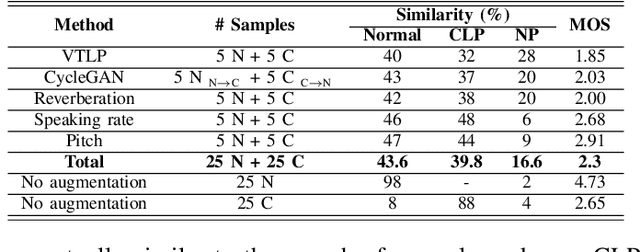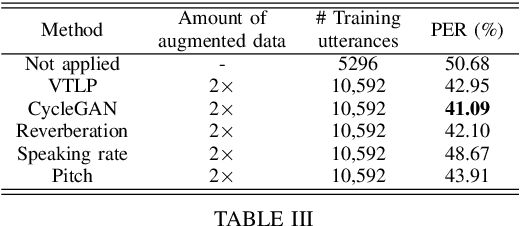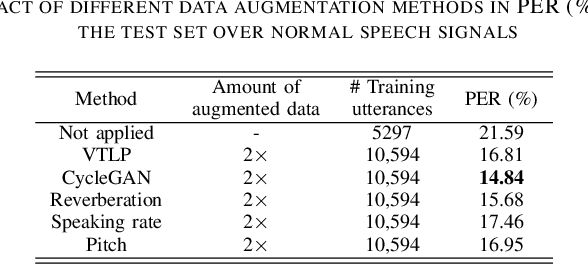Significance of Data Augmentation for Improving Cleft Lip and Palate Speech Recognition
Paper and Code
Oct 02, 2021



The automatic recognition of pathological speech, particularly from children with any articulatory impairment, is a challenging task due to various reasons. The lack of available domain specific data is one such obstacle that hinders its usage for different speech-based applications targeting pathological speakers. In line with the challenge, in this work, we investigate a few data augmentation techniques to simulate training data for improving the children speech recognition considering the case of cleft lip and palate (CLP) speech. The augmentation techniques explored in this study, include vocal tract length perturbation (VTLP), reverberation, speaking rate, pitch modification, and speech feature modification using cycle consistent adversarial networks (CycleGAN). Our study finds that the data augmentation methods significantly improve the CLP speech recognition performance, which is more evident when we used feature modification using CycleGAN, VTLP and reverberation based methods. More specifically, the results from this study show that our systems produce an improved phone error rate compared to the systems without data augmentation.
 Add to Chrome
Add to Chrome Add to Firefox
Add to Firefox Add to Edge
Add to Edge